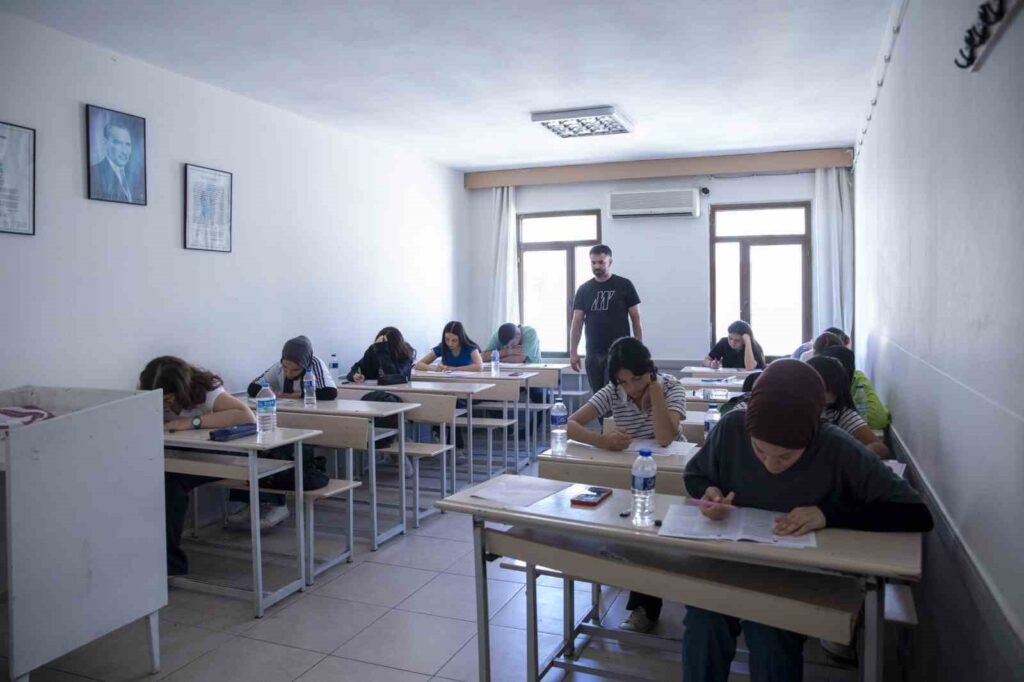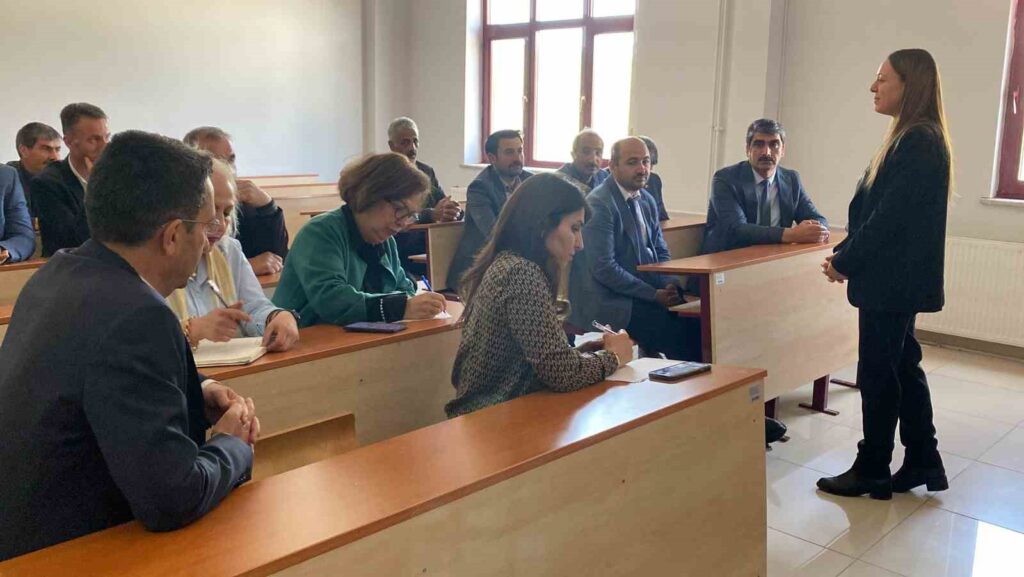Warning to those taking YKS: ‘Do not check the time at the end of each question or page’
Expert Guidance Counselor Fadime Ekici Bengü, who warns students for the university exam that will take place over the weekend, said, ‘If you feel stressed during the exam, take a break. This way, you can gain 10 questions. Also, don’t worry about the time …

Expert Guidance Teacher Fadime Ekici Bengü, who warned students about the university entrance exam to be held over the weekend, stated, ‘If you feel stressed during the exam, take a break. This way, you can gain 10 questions. Also, if you are experiencing time anxiety, do not check the time at the end of each question or page, as this can increase stress and worsen focus problems.’ The Higher Education Institutions Exam (YKS), in which 3,036,945 university candidates will participate, will take place on June 8 and 9. Providing various recommendations to students who will sweat to achieve their dream university, Expert Guidance Teacher Fadime Ekici Bengü from Istanbul Beykent University stated, ‘The process of overcoming excitement actually starts during the preparation period for the exam. In fact, students start to overcome this excitement by taking practice exams. However, when the exam moment comes, students can panic. First of all, they should accept that everyone experiences this process. Because due to panic, they can experience problems such as stomach pain, insomnia. So, let them accept the normality of this process.’
Fadime Ekici Bengü recommends breathing exercises for excitement, focus problem, and rising stress during the exam. In such a situation, students should first take a break. Students think, ‘If we take a break, will we lose time?’ No, on the contrary, when you take a break, you can gain 10 questions. Of course, there is also the possibility of losing. However, at this point, when you take a short break, do a slight breathing exercise, drink water. This way, you will realize that you can control yourself and relax. After starting to solve the questions, you will gradually feel a sense of relaxation.
‘Go outside a day before the exam but stay away from crowds,’ stated Fadime Ekici Bengü, emphasizing the sudden increase in temperatures. ‘Parents can say to students a day before the exam, ‘Let’s go out for some motivation, let’s have a meal together.’ They can consume foods they don’t usually eat. However, with the effect of suddenly increasing temperatures, students’ stomachs can be upset. So be careful. If you want to go out, go out but do not tire yourself too much. Stay away from very oily products and crowded environments as much as possible.’
‘Get rid of clear boundaries such as lucky bracelet, lucky clothing so that you do not have difficulty during the exam process,’ said Fadime Ekici Bengü. ‘We observe in our students that during the exam preparation phase; they have habits such as constantly sitting in the same corner in the class, wearing a lucky bracelet, wearing a lucky buckle, wearing lucky clothes. They think these will bring them success. They should wear comfortable clothes in the exam. Yes, feel good about yourself but if there is a luck element, do not wear it in the remaining process and especially on that day. In the real exam, you won’t be able to wear that bracelet anyway. So, get rid of clear boundaries if there are any, so you don’t have difficulty during the exam process.’
‘Initially, take a look at the questions,’ said Fadime Ekici Bengü. ‘Solve the exam as you solve your practice exam. Do not say ‘Let me start with this test this time.’ Because actually, during the year, students have figured out how much time they allocate to which test. They proceed accordingly. If you have a technique that you have established during the year, continue with that. This is usually the ’rounding technique’ we teach. Initially, take a look at the questions. Because visual familiarity is important. You can instantly focus on easy questions and direct yourself to the answers. Do not think ‘I found the answer to this minus 2, no, I definitely made a calculation mistake, the answer to this is plus 2’.
‘Do not check the time at the end of each question or page,’ warned Fadime Ekici Bengü about time management. ‘Students make a mistake with time anxiety. They solve a question during the exam, check the time. They solve another question, check the time again. Fundamentally, if the student has an anxiety problem that they cannot manage, trying to keep it under control, constantly checking the time raises the stress level. This can cause focus problems, trembling, and sweating. Therefore, check the time at the end of the test as much as possible. Do not check the time at the end of each question or page.’







